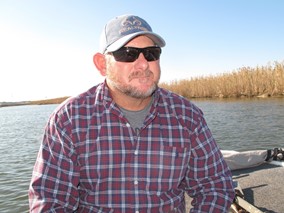
“I’ve seen this Bay try and try to recover. It’s a scary thing to ask for [the fishery to close] but I know in my heart this will make it a stronger Bay. Aquaculture is not the answer for wild harvesters. . . . we have to rebuild our beds so our seafood workers can go back to work and make a living.” -Shannon Hartsfield, Apalachicola Seafood Worker
The Florida Fish and Wildlife Conservation Commission (FWC) unanimously voted to approve the proposed draft rule changes that would close commercial and recreational harvest of oysters in Apalachicola Bay through December 31, 2025. Fishermen, seafood dealers, NGO representatives, and a number of other stakeholders provided compelling public testimony in favor of the closure. However, this is only the first step, and the second will be the Final Rule Hearing at the October FWC meeting in Destin, Florida. This is not where it ends.
While the request for closure came largely from a community tired of watching their oyster fishery and way of life erode over at least the past decade, and moved by a deep yearning to have the Bay restored to some facsimile of its former productivity, the reality is that the closure alone will not accomplish all of these things. Suspending wild oyster harvest is absolutely necessary, as is strong community support. However, these must be coupled with science-driven and tested restoration plans using methods that demonstrate the greatest chance for success, well-considered metrics that determine when that success has occurred, and an oyster management and restoration plan for Apalachicola Bay that can perhaps serve as a template for a state-wide undertaking. Closing the Bay to wild oyster harvest will give scientists and managers the rare opportunity to address these needs by learning how the ecosystem functions without the complicating influence of the fishing pressure.
Florida State University's Apalachicola Bay System Initiative (ABSI) team at the FSU Coastal & Marine Laboratory is working closely on these problems with partners (FWC, the University of Florida, and Florida Agricultural & Mechanical University), with the ABSI Community Advisory Board, and with other entities working in the region (e.g., the Apalachicola National Estuarine Research Reserve, the Apalachicola Riverkeeper Slough Restoration Project, The Nature Conservancy, Pew Charitable Trusts). By working together and sharing information, ideas, and resources, we can collectively make the best use of the scope of funds that has been entrusted to all of us. Commissioner Robert Spottswood, Chair of the FWC, noted that the level of funding directed at restoring the Apalachicola Bay had generated considerable excitement about these projects.
Scientists, state and federal agencies responsible for resource management, watermen, seafood dealers, and other stakeholders have a common goal in achieving the greater good for Apalachicola Bay and for the people whose lives are inextricably tied to it. Through intensive, collaborative, and transparent efforts, we hope that the measure approved on July 22 will be rewarded by the return of a sustainable wild oyster fishery and a healthy bay.

